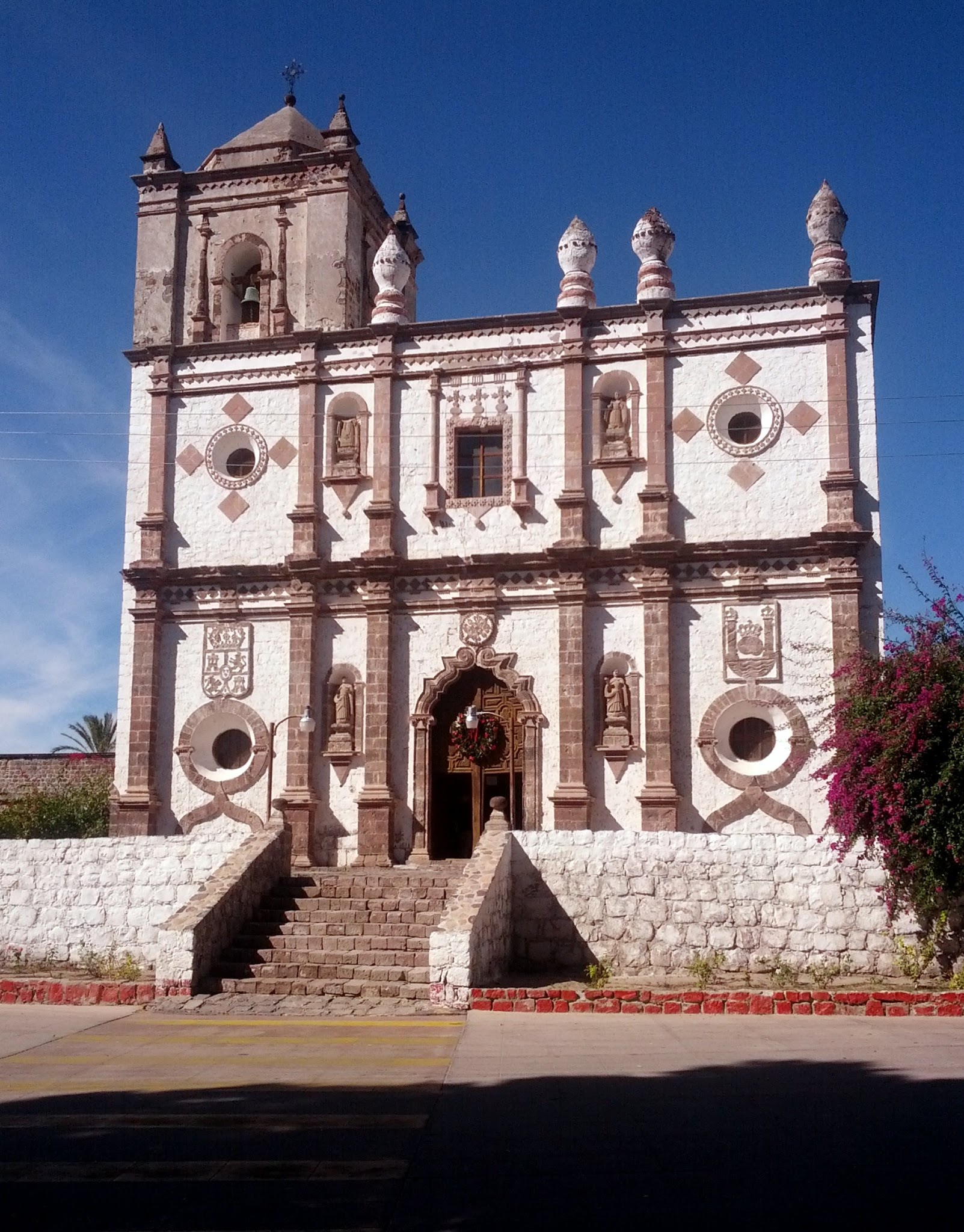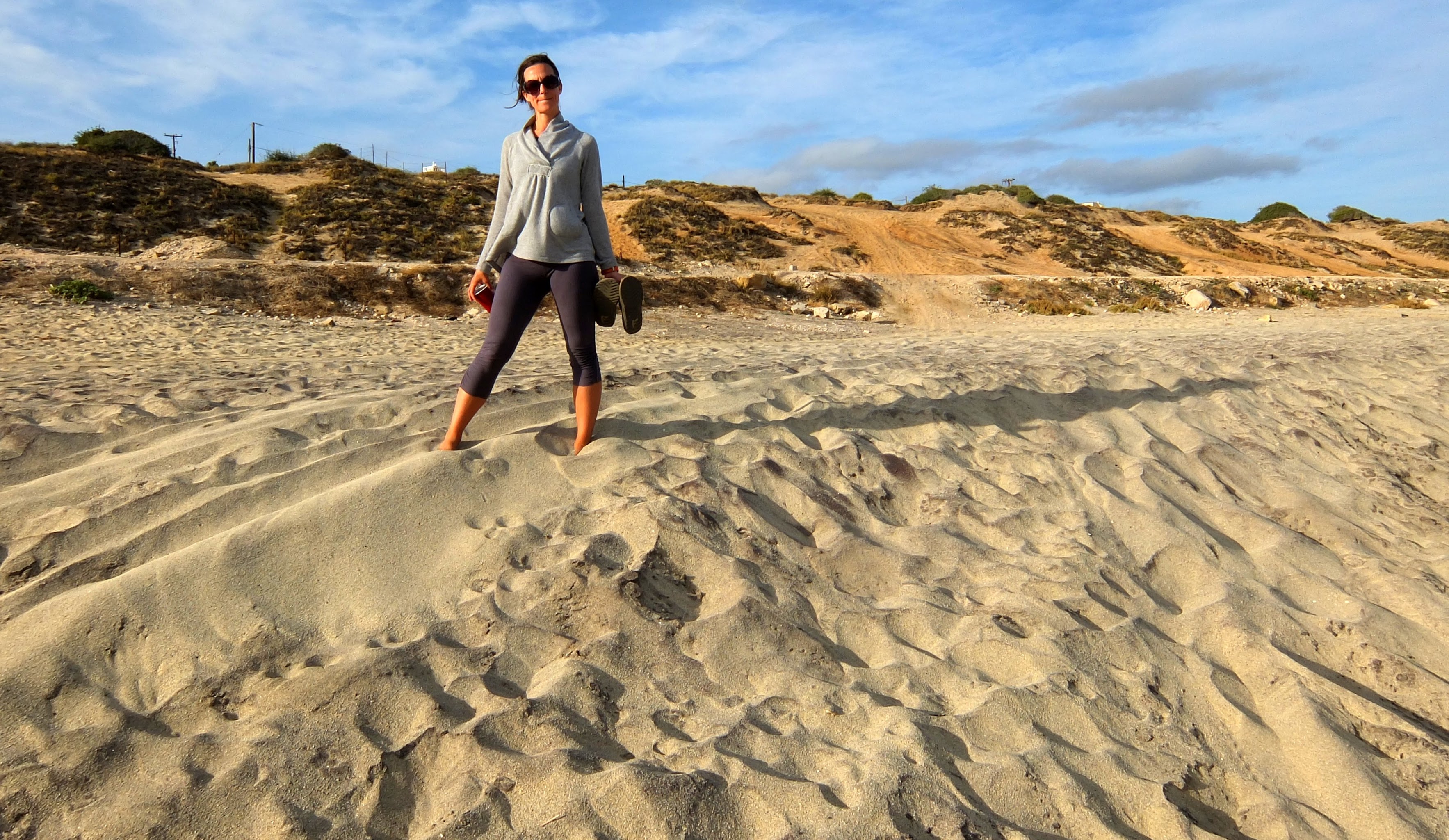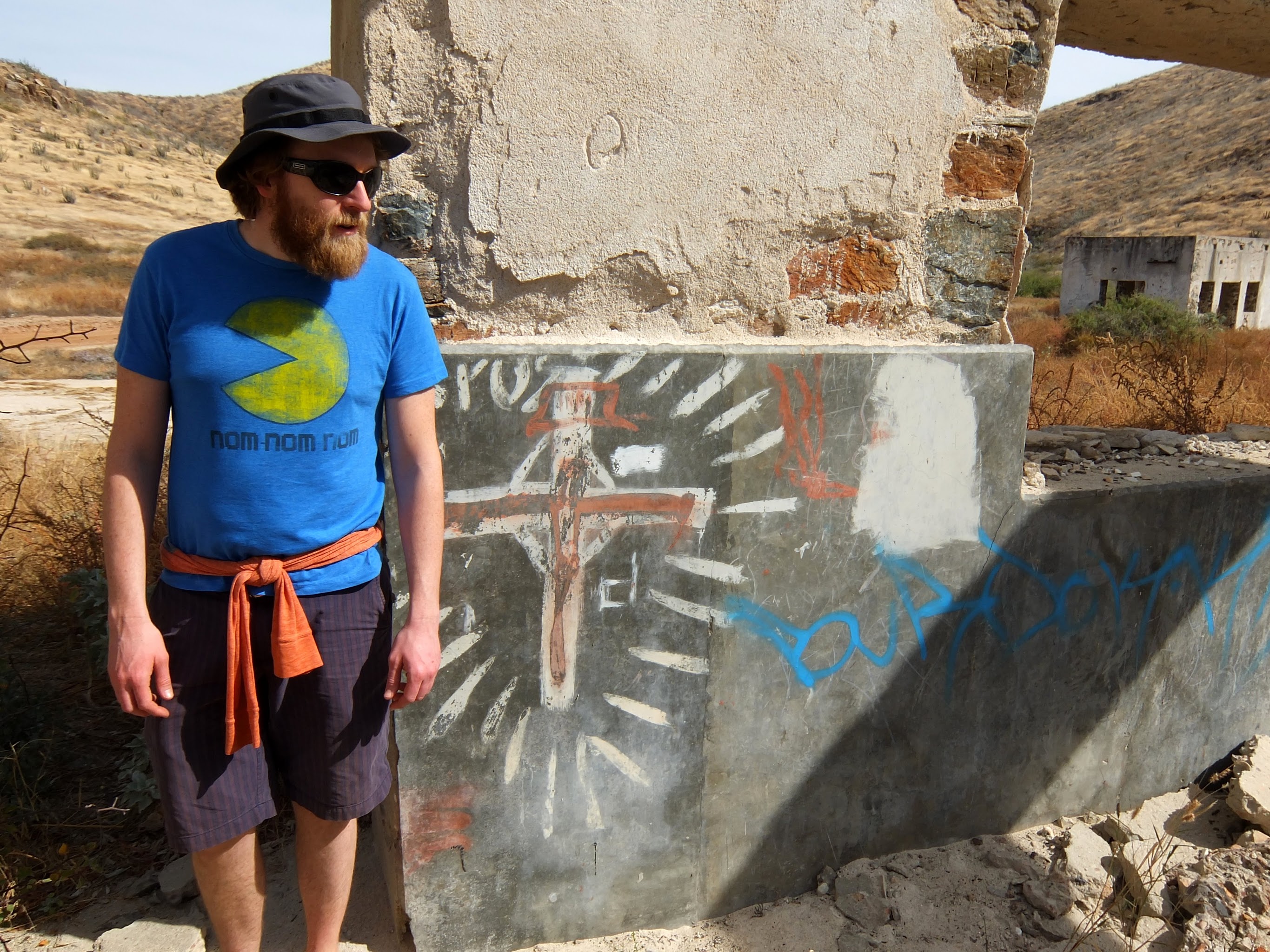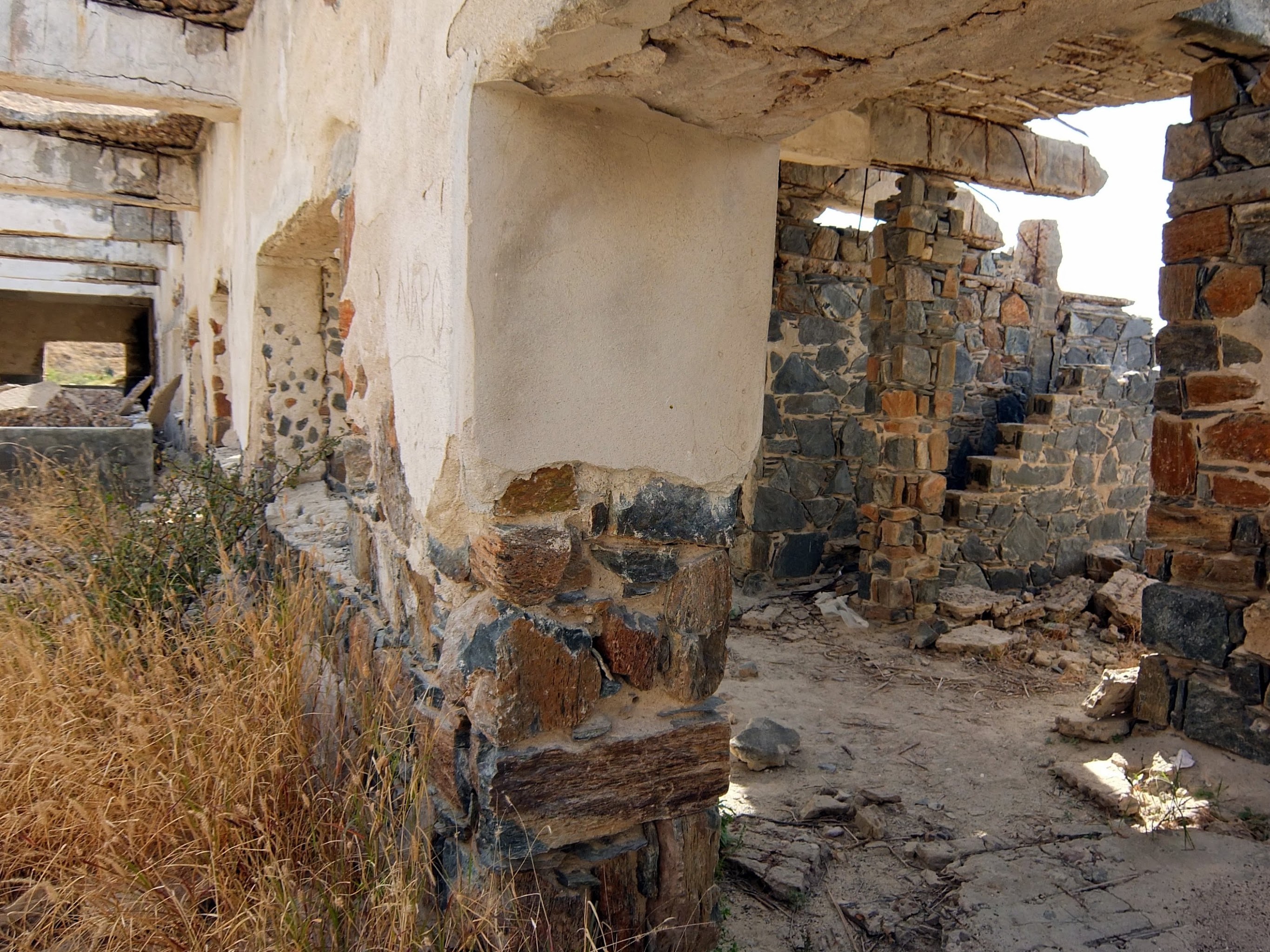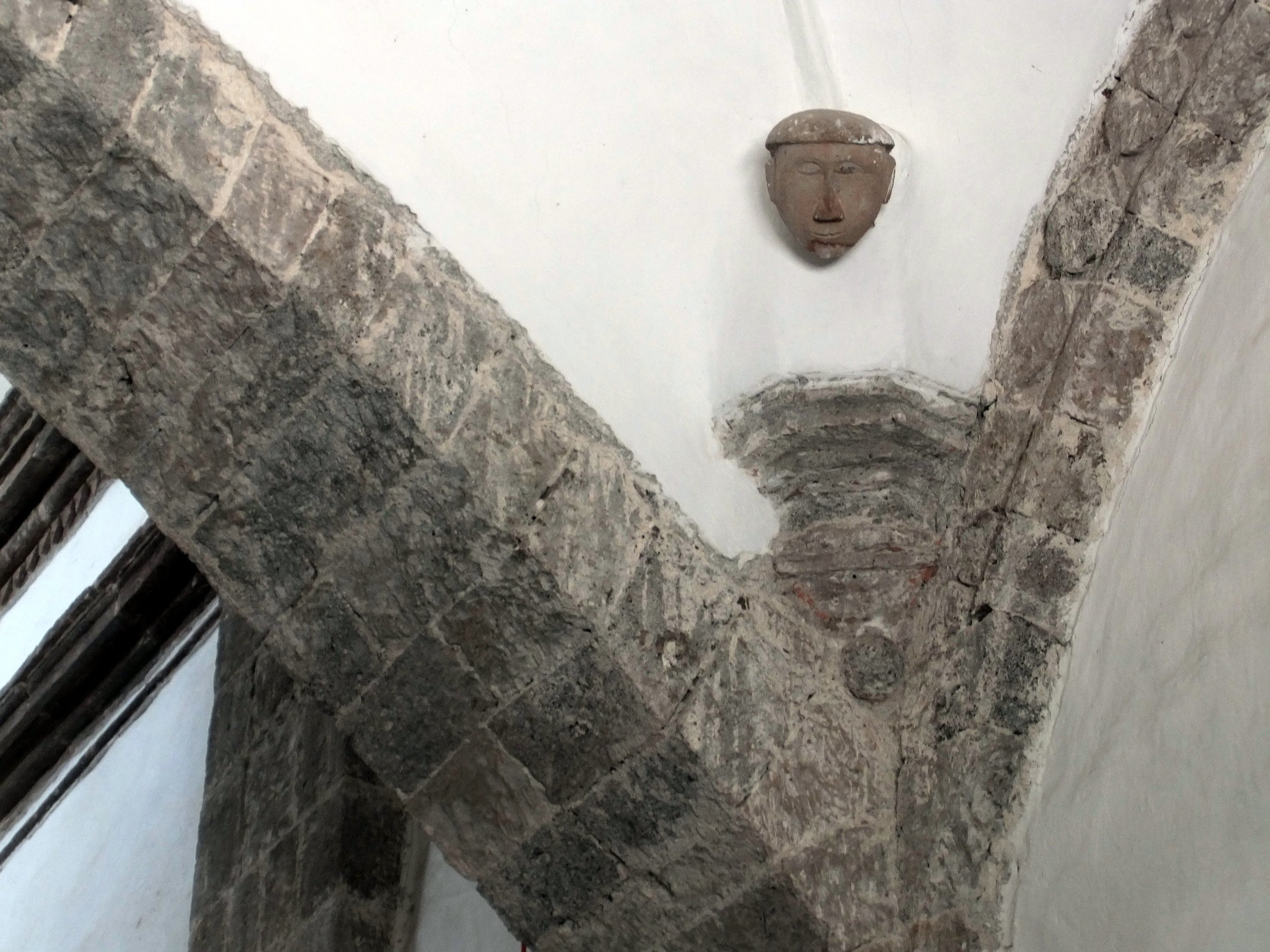Singing...
Oh, down in Mexico
I never really been so I don’t
really know
Oh, Mexico
I guess I’ll have to go…
I don’t love James Taylor, but his song Mexico cracks me up. It sounds so simple. We’ve been finishing just about any sentence that ends with an “oh” sound with lines from the song. “That sign points to the left, but we need to head north. Which way should we go?” “I’ve never really been so I don’t really know”.
We’ve been down here for a few weeks. We drove down through southern California, and that provided something of an adjustment period. We started seeing cactus and places that started with San or Santa, but nothing can prepare you for the experience of approaching Tijuana on I-5. We had some typical rush hour traffic, like in many cities up the west coast at that hour. But then things got strange. A sign said “Last US exit”. The vast wide road had not narrowed at all, but now we were alone on it; driving off the edge of the interstate, driving off the edge of the United States. Ahead, a Mexican flag the size of Rhode Island waved in the light breeze. All the lanes turned sharply and we passed through the gates saying “nothing to declare”.

We were waved aside for inspection and asked questions like where we planned to go, and what our car was stuffed to the gills with. We are camping, Kristin explained in Spanish. I got out to open the trunk. A dog sniffed our moldy old canvas bags, our Jerry cans with diesel and water, our running shoes. Poor dog. Then he sniffed the drivers seat. The handler tried to restrain him but the intoxicating whiff of Trader Joe’s snacks proved too much for the golden retriever and he leapt over to the passenger side and clawed at the upholstery to hold his ground as they pulled him out.
And then we were cleared into the country. But we still needed to get a visa to stay for more than a few days, so we needed to find the immigration office. This building is by an unsigned parking lot just to the right after the inspection gates. Large signs and the general direction of traffic urge you the other way, and if you miss it, you will need to navigate through the wasteland that is our border with Tijuana to find your way back. We found it, and got our 180 day visa.
As we drove away from the office and into the concrete jumble of roads and overpasses, the reality was becoming apparent. Tijuana is scary as hell. Our phone’s GPS system still worked, though it was all in meters now. “in 300 meters turn right by the burned out wreckage”. The voice of the computer navigation lady gave us courage as we sped down an overpass through scenes out of Mad Max, scattering a group that looked like zombies from the road. We drove south, trying to make as much distance from the border and its hassles as possible.

We camped the first night on the beach outside of San Quintin, and the second night out in Catavina. The low temperatures were startling, and the winds severe. Catavina is in the middle of the desert, far from any beaches or services. It is not popular or populated, but it does feature the fabulous Boojum tree, as well an amazing variety of other cacti set among boulders in a lovely unending garden, tended by no one.

Then we were on to Bahia de los Los Angeles and the Sea of Cortes. Or the Gulf of California. We camped along the beach, which is muy tranquilo in part because there is not much swell on that side, so it behaves a little like the Puget Sound. But the desolation on land makes the vistas lovely. All that dust and rock becomes poetic when viewed from far away, transformed into lines and hues that not even Cezanne could faithfully recreate.
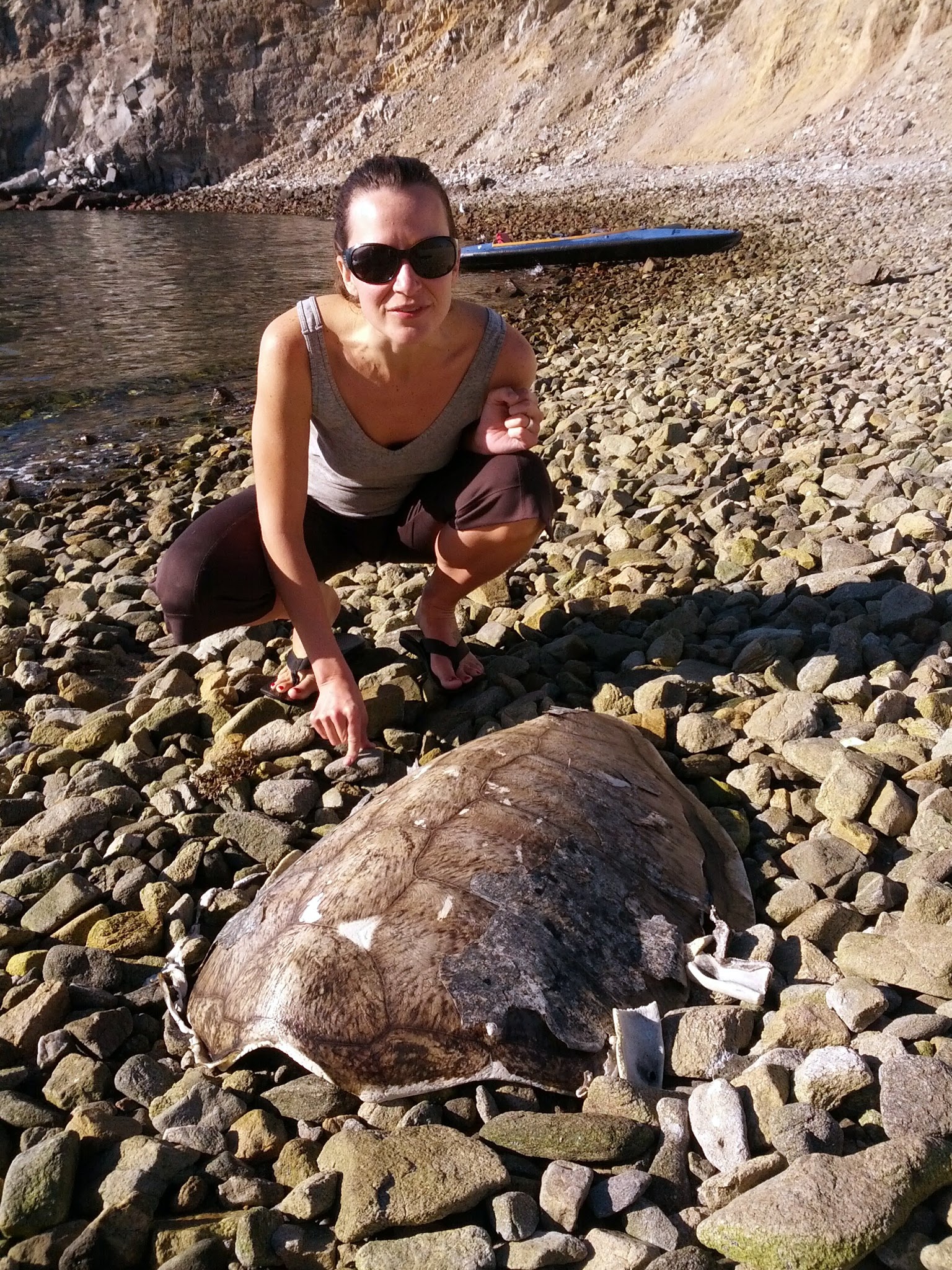
We went for a paddle in our kayak, out among a big school of dolphins. They played with us a bit but mostly were content to feed on a school of fish deep below us and then to surface every few minutes to say “hi”. The grace of these 7 foot long grinning missiles is astonishing. After half an hour we finally paddled away from them and out around Isla La Ventana, but we kept looking back. All around pelicans hit the water. The land is desolate out here but the sea and the sky above it teems with life.
We had some trouble in this area due to bad planning. We expected ATMs, or at least gas stations that took credit cards. We got neither. We took great care with our limited cash and used our spare jerry can of diesel to make it to the next outpost of civilization. The locals were very helpful though. Our campsite director took US dollars to help us preserve our pesos. We did the math later and found that she gave us a good discount in the process.
We encountered a father/son team on dirt bikes who had made the same error in judgement, low on fuel, water and cash. They told of us a more harrowing adventure they recently endured. Their off-road path crossed a lake bed but a rare downpour had turned it to sticky clay. One bike burned out a transmission trying to turn its clay laden wheel. They were forced to hike out to the highway, reaching it at dusk.
Now the guides for travelling down here will put the fear of god in you. Strict instructions tell you to keep off the roads at night, and to never camp alone. We started to imagine a race of vampires scouring the desert looking for fresh blood. So this father/son team must have felt vulnerable as they stuck their thumbs out in the dying light. They were picked up immediately, by a trucker who gave them the rest of his hot coffee to warm them up, and asked them where they wanted to go. Awfully nice for a vampire.

We continued down Mexico 1. Navigation is usually quite simple, highway 1 is the only road, and it heads north-south for the length of the peninsula. We made it to Guerrero Negro, crossing the border into Baja California Sur and also into a new time zone. There we found ATMs, groceries, refilled our water tanks, ate a good meal, and then headed further south to camp at Ojo de Liebre.


Which is a place almost beyond belief. How many places are both a UNESCO World Heritage Site and a major salt plant? There are some signs, but it takes confidence to traverse the vast expanse of dirt roads and salt ponds, convince the guard at the gate that he should let you pass, and then continue miles further across complete desolation to reach the campsite. And when you do, you must pinch yourself because here, impossibly, is civilization. Composting toilets. Solar showers. Palapas to guard your tent from the sun and the wind. A bar. An excellent cook preparing breakfasts and in the evening a range of seafood. We had raw scallops and ceviche. And lots of beer. The staff hung around after closing time and played music with us.
They charge you roughly 5 us dollars to camp under a palapa. Not 5$ a night, 5$ total, stay as long as you want.
During the day, for a fee, they took us out to play with whales. On a day when you see a white whale (a grey whale with white skin) and a friendly whale comes by and lifts your boat on its back, you might forget that you also saw sea turtles, pelicans, loons, and a cheeky bottlenose dolphin that swam ahead of the boat and cocked his head sideways so he could keep an eye on us. Amazing.
We drove on, reluctantly, and reached Bahia Concepcion along the Sea of Cortes. There I ate tiny oysters on the half shell, and we practiced not doing much. I haven’t gotten the hang of that yet. Then on again to Loreto, staying in a hotel for the first time in over a week. When campsites have showers and the weather is warm and dry, houses start to seem obsolete. But Loreto, like San Ignacio before it, was a welcome relief form the desolate dry land. For us, a puddle and a palm tree now seems like the Florida everglades. The small town of Loreto was an oasis in many ways, providing welcome social contact and a taste of a more developed local culture than scattered commercial campgrounds in the desert can provide.
It wasn’t a long trip Loreto to La Paz, a real city, and then finally on to our destination of Todos Santos. We’ve settled down here for a while and are still drinking in all the gentle absurdity and beauty of this country. The air around us buzzes and sings with hummingbirds, swallows, doves and the flutter of moths. In a strange twist, the moths are the same size as the swallows but they lack grace and menace you at sundown.

Out in the Pacific, just offshore, the whales graze like cattle. Sometimes you see Humpbacks, sometimes Greys. The Grey whales take advantage of the steep surf break here and come within spitting distance of the shore, perhaps 50 yards out. Tonight I saw one surfing, riding up the side of a breaking wave. On the shore, biologists have built a makeshift greenhouse to keep the sand warm enough for the gestation of Leatherback turtle eggs. They regularly hold events where tourists come out to line up and let the newly hatched tots go out to sea. Like church, after the main event they pass the hat around.
Last night the wildlife came over to our house; several horses decided to graze on the overgrown lot next door. They ate our trash, which as is well, as there is no local trash collection. I guess they weren’t wild, but they stuck around for several days and showed no outward signs of being owned. In the night, otherwise silent but for the distant crashing waves, a horse simply walking and chewing outside your window can make an amazing amount of noise.
Wildlife, sunsets, dirt roads, whales everywhere, Spanish speaking native Americans, state run gas stations, new food, odd bathrooms, new customs, incredibly tasty torillas, the whole breadth and depth of the world changes dramatically right at the U.S. (los EEUU) border with Mexico. I’m just getting over the initial shock, and though I have now been, I still do not know. Oh, Mexico.



















